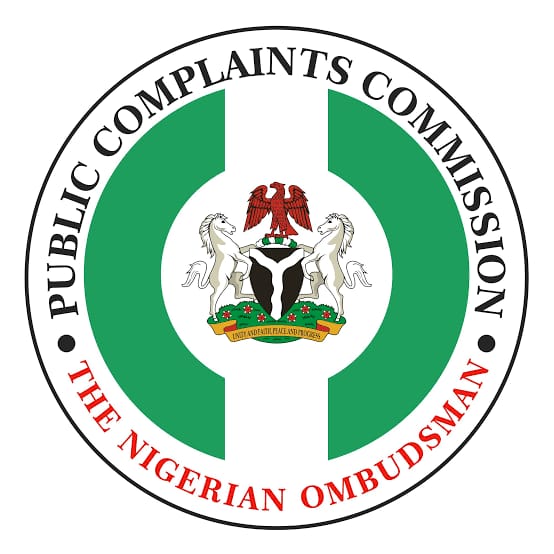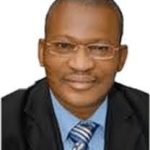The Public Complaints Commission(PCC) says it plans to establish an Electricity Consumer Resolution Desk in 36 states of the Federation and the Federal Capital territory(FCT) to address power issues.
Hon.Bashir Abubakar, Chief Commissioner, PCC said this in Abuja on Monday at the FCT Electricity Consumer Complaints Resolution Workshop organised by the FCT PCC and Association for Public Policy Analysis.
The workshop was themed ‘’Addressing Electricity Consumers Complaints in the FCT through Synergy between Public Complaints Commission and the Legislature.
Abubakar said that the comsumer’s complaints resolution desk would have scheduled officers whose capacity shall be developed to carry out the functions.
According to him, training programmes shall be organised to develop the capacity of our staff to seriously engage in this task of addressing electricity consumer complaints across the federation.
“We at the national headquarters of the commission will take this event as a pilot which shall be replicated in the 36 States of the federation and local government councils.
“This is needed now that state electricity markets are emerging because of the power given to states by the Electricity Act 2023 to generate, transmit and distribute electricity.
“We are aware that the Nigerian Electricity Regulatory Commission (NERC) has given license to some State Electricity Regulatory Commissions.
“It will therefore be of great advantage to the states that PCC takes up the responsibility of ensuring that complaints of consumers in states are not ignored. This will enhance peaceful and consumer satisfactory electricity service delivery, ” he said.
Abubakar commended the organisers for taking the initiative to address the complaints of electricity consumers in the FCT.
He said that the workshop came at a time when the new administration of the PCC was just a week old after inauguration by the National Assembly.
The commissioner said that the workshop focused on the need to proactively investigate how consumers are treated in terms of administrative and bureaucratic issues that affect expeditious handling of electricity consumer complaints.
“The renewed hope agenda of this administration is anchored on reform policies that are aimed at repositioning the economy for prosperity, social and economic wellbeing of Nigerians.
“Hence, social justice which our commission stands for shall be brought to bear in the electricity sector. For the economy to grow, citizens to be productive, poverty to be reduced, electricity is needed, ‘’ he said.
On her part, Sen. Ireti Kingibe, representing the Federal Capital Territory at the Senate said that she supports the creation of an FCT Electricity Consumer’s Resolution Desk within the PCC.
Kingibe represented by Mr Osereme Omofoma, a Senior Legislative Aide in her office said that she also encourages consumer advocacy.
She said that consumers should report their electricity grievances either through constituency offices or directly to the PCC to ensure every complaint is addressed promptly.
“At the grassroot level, Area Councils should also push for the establishment of the electricity consumer’s desk to ensure their residents’ complaints are addressed locally and forwarded to the appropriate desk, ‘’ she said.
On his part, Rep Joshua Obika, representing Abuja Municipal (AMAC)/Bwari Area Councils in the House of Representative said that the workshop was commendable and apt.
According to him, the workshop will help in addressing the serious and embarrassing experience of electricity consumers in the FCT.
He said that with the increase in electricity tariff and fuel, it will be necessary for the consumers who struggled to pay the bills are well served.
“On my part as one of the representatives of the FCT, I promise to ensure that whatever outcome or recommendation agreed upon at this workshop is presented to the National Assembly for necessary action, ‘’ he said.
Mr Princewill Okorie, National President, Association for Public Policy Analysis said that PCC should investigate the actual number of metered and unmetered consumers in the FCT and other states.
Okorie said that the investigation would enable PCC to ascertain the actual revenue generated from electricity consumers in the country.
“This is to establish the truth or otherwise claim of lack of liquidity in the sector that leads to borrowing of money and regular increase in tariff, ‘’he said.
Mr Kenechukwu Ofili , Head, Customer Experience, Abuja Electricity Distribution Company (AEDC) said that the theme was timely, especially during the celebration of Customer Service Week.
Ofili said that at AEDC they believe that collaboration between regulatory bodies, consumer protection agencies, security forces, and customers was essential to resolving complaints and improving service delivery.
“Challenges in addressing consumer complaints, electricity distribution is highly customer-centric. From metering and billing issues to outages and inefficiencies, we recognise that unresolved complaints directly impact our credibility as a distribution company.
“The complexity of serving a region as prominent as the FCT adds to the demand for quality service. We have taken significant steps to improve complaints resolution, ‘’ he said.
Earlier, Mr Musa Dikko, FCT Commissioner, PCC said that the workshop was to sensitise consumers in this territory on electricity supply and usage.
Dikko said that PCC had received a lot of complains from electricity consumers so they are proactive to avoid protest against AEDC or government.











